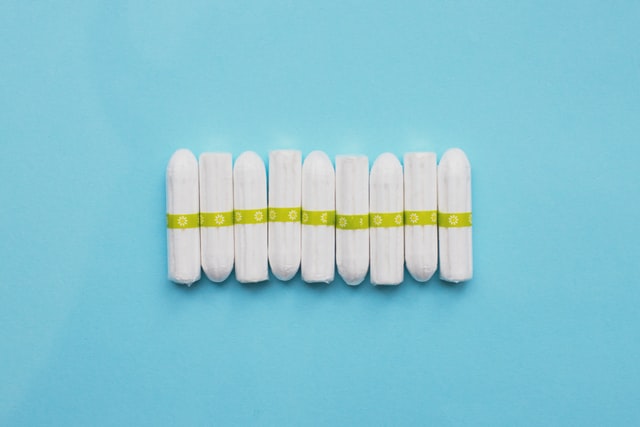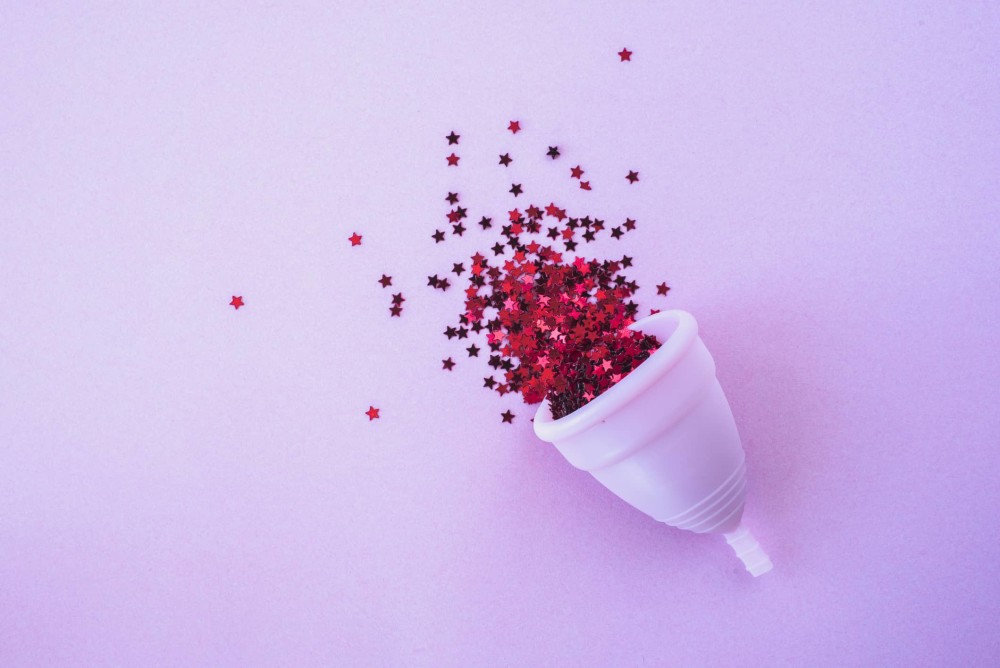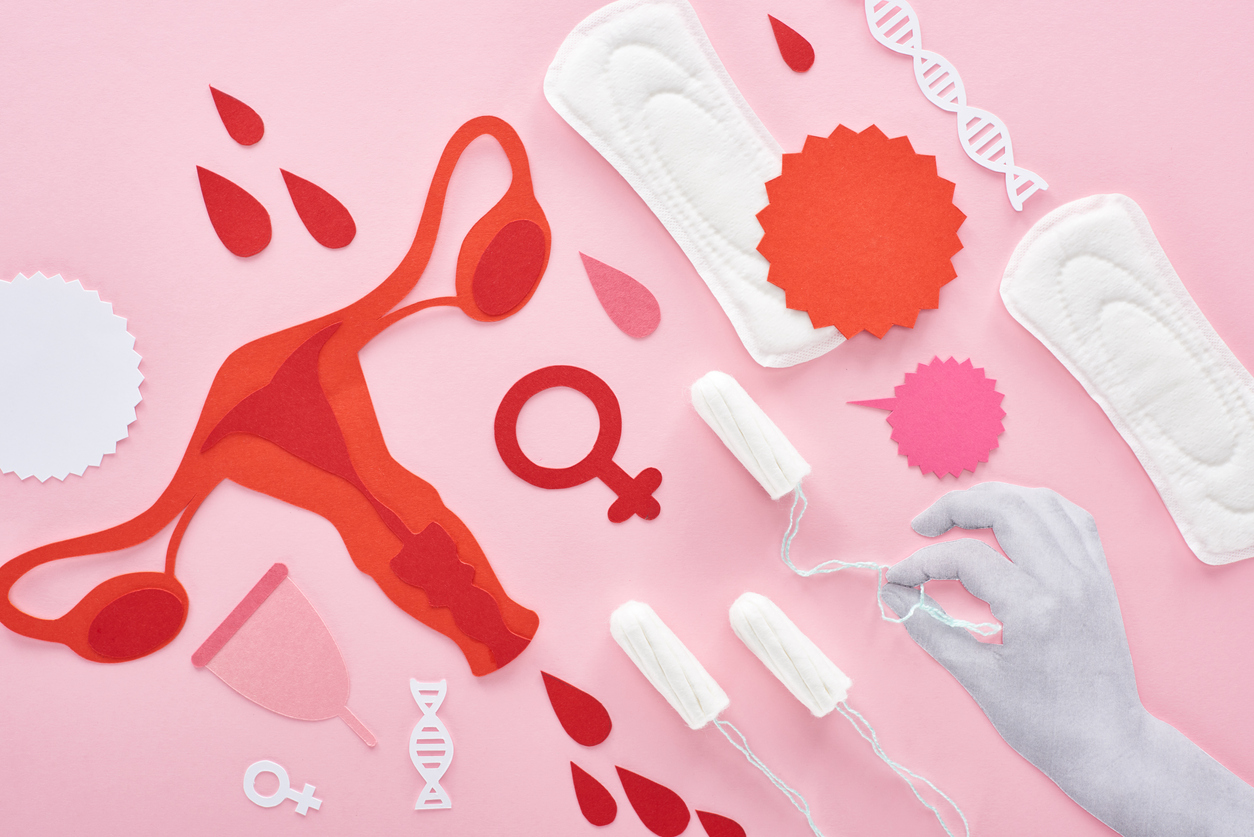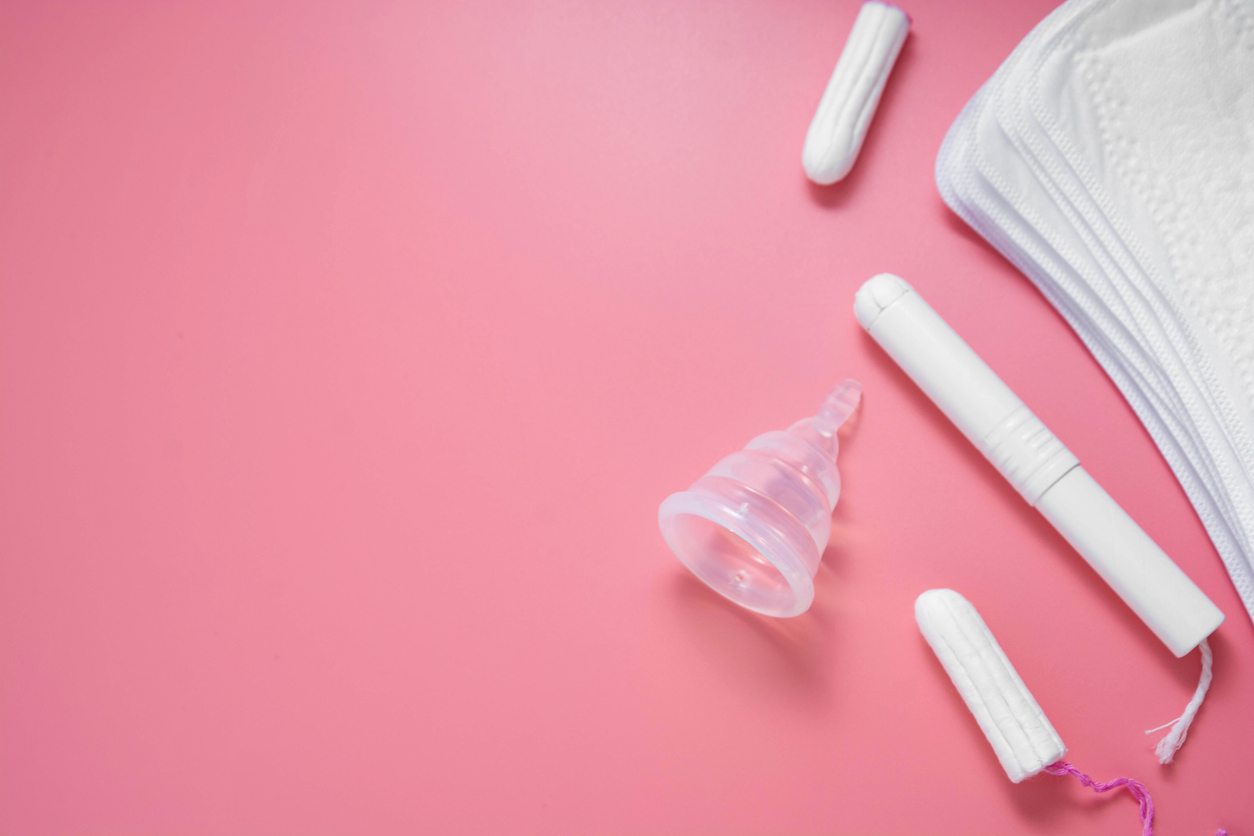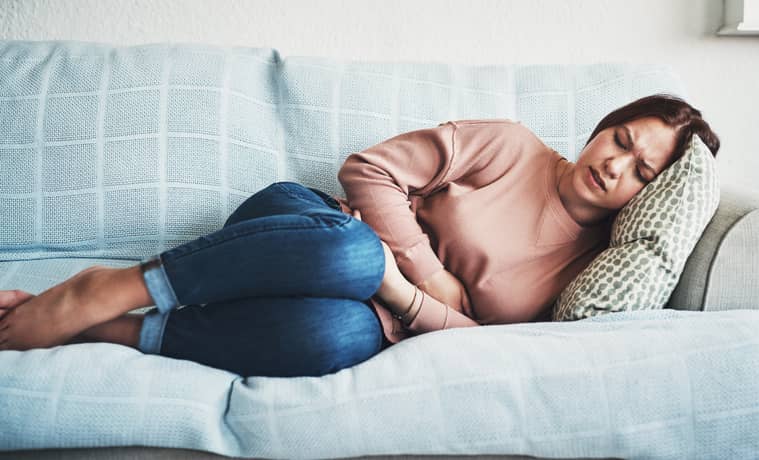Is your period blood loss sometimes so heavy that you have to cancel social plans because you’re scared to go too far from a toilet? Or does your period make you feel anxious about meetings at work, because blood could flood through your clothes? You’re not alone.
Heavy period problems such as flooding and blood clots can be messy, and may leave you feeling physically drained or in pain, as well as worried about being embarrassed in public.
But while they might sometimes feel impossible to deal with, heavy periods don’t have to rule your life. There are now plenty of treatments available to make them more manageable, rather than something you have to dread every month.
So read on to find out what’s normal and what’s not, when to worry about flooding or blood clots, and the possible causes of heavy bleeding – plus treatments and solutions to help you take control of your symptoms.
How common are heavy periods?
Heavy periods are a common reason women seek medical advice. To give you some idea of the scale of the problem, in the UK, about 1 in 20 women aged 30 to 49 see their doctor about heavy bleeding each year. In the US, it affects more than 10 million women a year.
How to tell heavy periods from normal periods
The medical name for heavy periods is ‘menorrhagia’. It’s defined as excessive period blood loss that regularly affects your daily life – physically, socially, and emotionally.
It’s different from just having a few days of heavier flow during your periods, which is normal. Read more about how much you bleed during a ‘normal’ period.
What are the signs and symptoms of heavy periods?
It can sometimes be hard to work out if your blood loss is heavy compared with other people’s bleeding – it’s difficult to measure, and not something that’s talked about much.
But if you have 1 or more of these symptoms, it’s likely that you have heavy periods:
- you need to change your tampon or pad very frequently – every 1 to 2 hours
- blood soaks through to your clothes
- you need to use 2 types of period protection – such as a pad and a tampon
- you have to get up during the night to change your protection, or you bleed through to your bedding
- you get large blood clots – bigger than a cherry (read more about period blood clots)
- your bleeding lasts more than 7 days
- your period stops you from going out or doing daily activities
Heavy periods can also mean you lose a lot of blood each month. This can cause iron deficiency anaemia, with symptoms including tiredness (fatigue) and shortness of breath.
You can try our Smart Symptom Checker to help you work out what to do next.
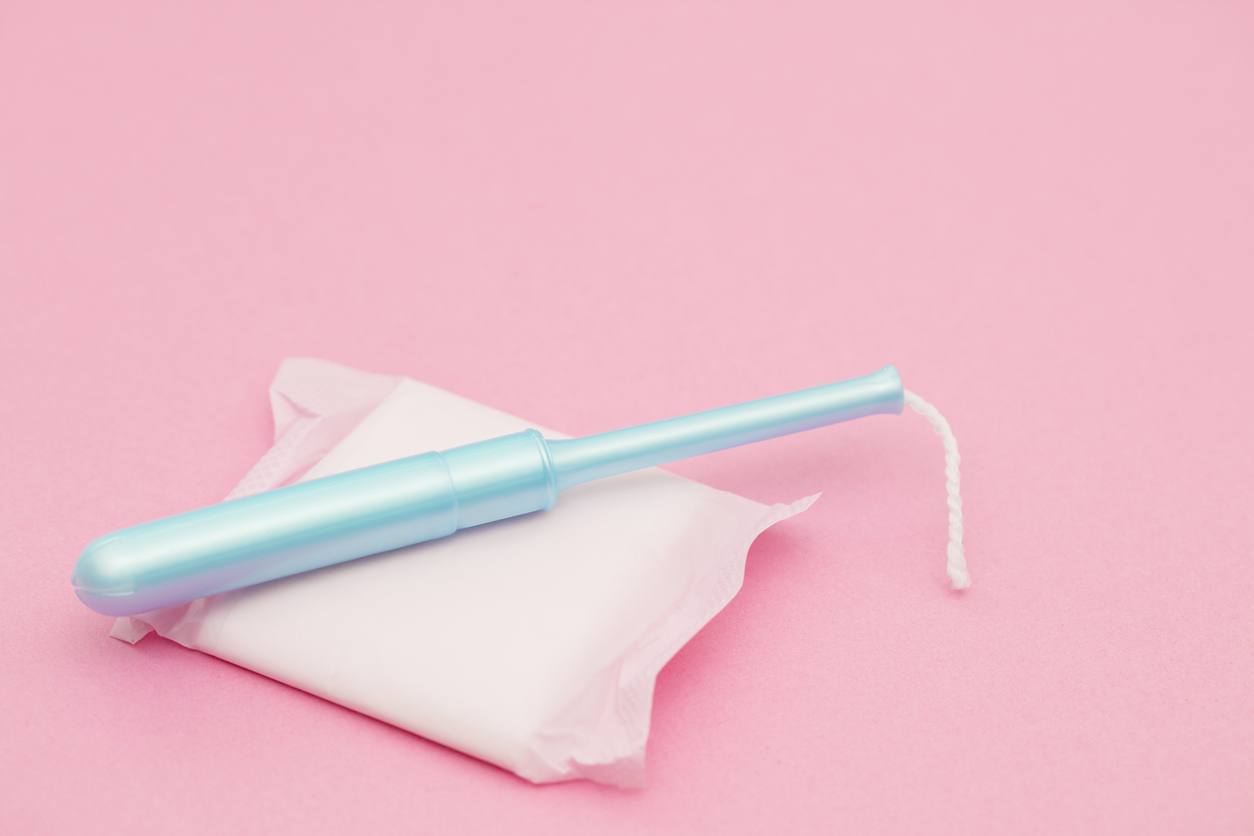
What causes heavy periods?
In about half of cases of heavy bleeding, no underlying cause can be found. The medical name for this is ‘dysfunctional uterine bleeding’.
In the other half of cases, there’s a long list of possible causes, including:
- fibroids – these non-cancerous (benign) growths in or around your womb (uterus) are a common reason for heavy periods. About 1 in 10 women with heavy periods and 4 in 10 women with very heavy periods (defined as blood loss of 200ml or more) have fibroids. Why they cause heavy bleeding isn’t clear, but it’s thought it may be due to abnormal blood vessels in your womb and changes in the way your womb squeezes (contracts) during a period
- endometriosis – this condition, where tissue that lines your womb grows in other parts of your body, is another common cause of heavy periods. About 1 in 10 women of reproductive age have it: 1.5 million people in the UK are thought to be affected, and more than 6.5 million in the US. It can cause heavy, longer periods, because you have more tissue to shed
- pelvic inflammatory disease (PID) – this infection of your reproductive organs can can be caused by sexually transmitted infections (STIs) such as chlamydia. It can cause inflammation in your womb lining and the neck of your womb (cervix), which can make bleeding heavier. Other symptoms include pelvic pain and painful periods
- polyps – these are mostly non-cancerous growths on stalks attached to the lining of your womb. If they grow large, they dangle from their stalks, irritating and rubbing off surrounding tissues. This exposes tiny blood vessels, which can lead to heavy periods, as well as bleeding or spotting between periods
- perimenopause – this is the time leading up to the menopause, during which your periods can change as your hormone levels go up and down. They can become heavier or lighter, irregular, or more or less frequent
- womb cancer – also known as endometrial or uterine cancer, womb cancer starts in the lining of your womb, and abnormal bleeding – including heavy periods – is the most common symptom. Between 8,000 and 9,700 women in the UK develop it every year. It mainly affects older women and is much less common if you’re under 40
- medication – certain prescription medicines can cause heavy bleeding, including blood thinners (anticoagulants) such as warfarin, as they prevent clots forming and increase blood flow during periods
- clotting disorders – these can cause heavy periods. Von Willebrand disease (VWD) is the most common inherited bleeding disorder
- thyroid conditions – your thyroid helps control your menstrual cycle, so thyroid problems can sometimes cause heavy periods or other period problems
How you can treat your heavy periods
If you have heavy periods, you don’t have to just put up with them. There are things you can do yourself to help manage and relieve your symptoms, including self-care measures and products from a pharmacy.
Self-care for heavy periods
- try period pants – made of super-absorbent, leak-proof fabric, these can be a good option to help manage a heavy flow, especially at night – some designs claim to be able to absorb up to 10 tampons’ worth of blood. Read more about period pants and other period products
- fit a mattress protector – these do what they say they do! They’re washable, so you can sleep easy in the knowledge that if you do leak during the night, it won’t damage your mattress
- manage period pain – heavy periods can also be painful periods, with symptoms such as cramps and lower backache. Read about managing period pain through self-care
- rest when you can – if your heavy periods cause iron deficiency anaemia, they can leave you feeling exhausted, so you should be kind to yourself and take it easy when you can. Find out more about managing iron deficiency anaemia
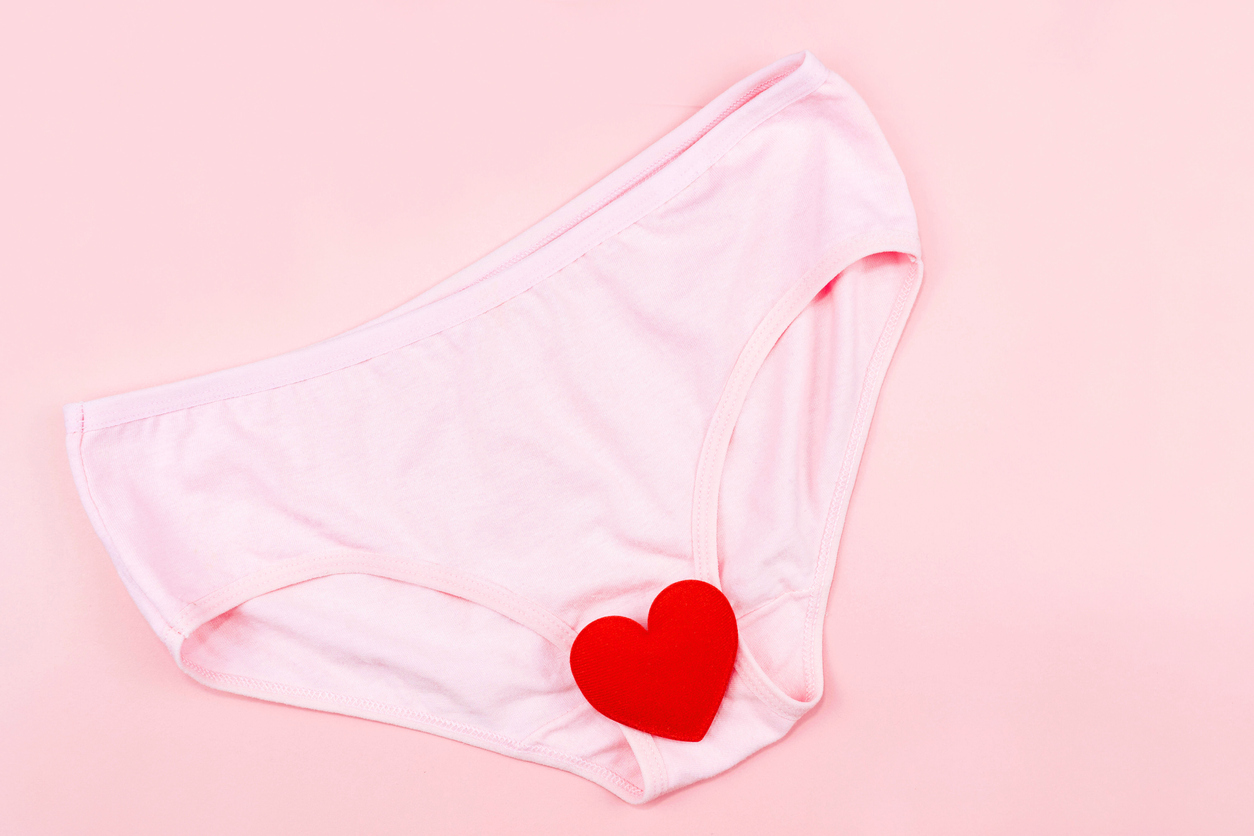
Doctor’s self-care tip
Dr Adiele Hoffman says:
“If you have heavy periods, it's a good idea to take steps to help prevent iron deficiency. Ensure your diet includes iron-rich foods, such as leafy green vegetables, occasional red meat, dried fruit, kidney beans, chickpeas and fortified breakfast cereals. Eating them with a drink that’s high in vitamin C – such as orange juice – can help with absorption. Or you could consider taking a multivitamin that contains iron. If blood tests show you’re deficient in iron, your doctor is likely to recommend a higher-dose iron supplement. Just watch out for constipation, which is a common side effect of iron.”
Pharmacy products for heavy periods
- super-absorbent period protection – it’s not a long-term fix, but it can give you peace of mind until your doctor helps you find a better solution. You may also want to double up: if you use tampons or a menstrual cup, you can wear a pad or period pants at the same time
- non-steroidal anti-inflammatory drugs (NSAIDs) – these types of painkillers (such as ibuprofen) not only help with period pain, but may also reduce blood loss. They work by reducing your levels of chemicals called prostaglandins, which are higher in women with heavy periods. Check with your pharmacist if they’re safe for you
- tranexamic acid tablets – this medication works by stopping blood clots dissolving, which reduces bleeding. You shouldn’t take them if you’re under 18, and should follow the instructions carefully. Ask your pharmacist for advice about whether they’re suitable for you
When to see a doctor about heavy periods
If self-care and pharmacy treatments aren’t helping and heavy periods are affecting your day-to-day life, see your doctor.
You should also see a doctor as soon as possible if you have heavy periods and:
- a lump or swelling in your lower tummy (abdomen)
- you’re losing weight without meaning to
- you’re bleeding from other parts of your body, such as your nose or gums
- pain during sex
- bad lower tummy pain
- pain when you pee, or trouble peeing
- constipation
- shortness of breath, fatigue or heart palpitations – these could be signs of iron deficiency anaemia
If you’re not sure whether to see your doctor, try our Smart Symptom Checker to help you work out if an appointment would be your best next step.
How to prepare for your appointment
First, don’t be embarrassed – your doctor is there to help. And you can make this easier for them by providing as much information as possible. Before your appointment, it can be helpful to:
- track your flow – keep a record of things such as the length of your cycle, how many days you bleed for, how many times you have to change your protection and if you’re getting large blood clots (you can use our self-care app to help you do this)
- ask friends and family about their periods – this can help you to work out if your bleeding is heavier than other people’s
How are heavy periods diagnosed?
As well as asking lots of questions about your periods – including the impact your symptoms are having on your health and quality of life – your doctor will want to know about:
- your sexual history, including any contraception you’re using
- any family history of fibroids, endometriosis or clotting disorders
- any other period-related symptoms – such as pain or symptoms of premenstrual syndrome (PMS)
- your cervical screening history
- any medication you’re taking
They’ll usually order blood tests to check for iron deficiency anaemia. If you don’t have any other symptoms, they may then decide to prescribe medication (see below).
If you have other symptoms, they may order blood tests to check for other conditions, such as underactive thyroid (hypothyroidism), polycystic ovary syndrome (PCOS) or blood clotting disorders.
They may also do a pelvic examination to check for fibroids or polyps, vaginal swabs to check for infections, or suggest an ultrasound scan to get a better idea of what’s going on.
Referral to a specialist
In some cases, you’ll be referred to a specialist in reproductive health (gynaecologist) for more tests to find out what’s causing your heavy periods.
Depending on your symptoms, tests may include:
- endometrial biopsy – a sample of the lining of your womb is taken and examined under a microscope
- hysteroscopy – a thin tube with a camera is inserted into your vagina and cervix to look at the inside of your womb
- laparoscopy – a thin tube with a camera is inserted through a small cut in your tummy to look for patches of endometriosis
If your doctor feels a lump or a build-up of fluid in your tummy, they’ll usually refer you to a specialist urgently, so they can rule out serious conditions such as cancer. This is rare, but needs to be ruled out.
Medication for heavy periods
Depending on your symptoms, there are different types of medicines your doctor can prescribe to treat your heavy periods.
NSAIDs
The NSAIDs usually prescribed to reduce heavy bleeding are ibuprofen, naproxen or mefenamic acid. You should take them on the first day of your period, then keep taking the dose your doctor recommends until your symptoms go away.
The latest research suggests that while NSAIDs can reduce heavy periods, they’re less effective than tranexamic acid or the IUS (see below).
Tranexamic acid
As well as being available from a pharmacy, your doctor can prescribe tranexamic acid to reduce heavy bleeding. They’ll usually recommend you take it from the first day of bleeding.
Iron tablets
If blood tests show you have iron deficiency anaemia, your doctor can prescribe an iron supplement, which will help with symptoms such as fatigue.
Hormonal treatments
If you’re not trying to get pregnant, your doctor might recommend a hormonal treatment to reduce your heavy periods. These include:
- intrauterine system (IUS) – this small contraceptive device fits inside your womb, and is recommended as a first-line treatment for heavy periods with no underlying cause. It works by releasing the hormone progesterone, which thins the lining of your womb (so there’s less tissue to shed during your period). It can make periods lighter and shorter, or in some cases stop them altogether
- combined pill – this contraceptive pill contains both progesterone and oestrogen, and usually makes your periods lighter and less painful
- progestogen-only-pills (mini pills) – these contain just progesterone, to thin your womb lining. They’re usually taken daily between day 5 and day 26 of your cycle. Your doctor will probably suggest you try them for at least 3 months to see if they work for you
- contraceptive injection – this long-lasting injection of progesterone given every 3 months also reduces heavy bleeding by thinning your womb lining. It can take up to a year for your periods and fertility to return after you stop using it
- gonadotrophin-releasing hormone (GnRH) analogues – sometimes used to treat fibroids (a common cause of heavy bleeding), these put your body into a temporary menopause by stopping your ovaries from making oestrogen, so your periods stop altogether
Non-surgical procedures for heavy bleeding
- endometrial ablation – this can be used to reduce heavy periods and/or to treat small fibroids in your womb lining. It’s a minor procedure where the lining of your womb is removed, either with lasers, a heated wire loop, or hot fluid in a balloon
- uterine artery embolisation – this is a procedure to treat fibroids and therefore reduce heavy bleeding. It involves an injection of a special solution to block the blood vessels that supply the fibroids, which causes them to shrink. Read more about this and other treatments for fibroids
Surgery for heavy bleeding
- hysterectomy – this is surgery to remove your womb, which is a way to deal with heavy periods if you don't want children. In the UK, 1 in 5 women have a hysterectomy before the age 60, mainly for heavy bleeding
- myomectomy – this is surgery to remove fibroids from the lining of the womb. Read more about it and other treatments for fibroids
Watch this space…
New research about heavy periods is emerging all the time, so it’s worth being aware of the latest ideas.
Weight and heavy periods
Being obese is linked to heavy periods, according to a study conducted in women and mice. It’s thought that greater blood loss could be due to increased inflammation in the womb lining, which delays its repair.
Depression and heavy periods
One study found that women with a history of major depression were nearly twice as likely to report heavy bleeding. More research is needed into why this might be, but one theory is that irregular fluctuations in oestrogen levels could affect both abnormal bleeding and certain brain chemicals that control mood.
Natural remedies and heavy periods
At present, there isn’t enough evidence about effectiveness and safety to recommend any natural remedies for heavy bleeding. A few small studies suggest these remedies may be ones to watch – but larger, longer-term studies are needed:
- ginger – a couple of small studies have shown that taking ginger supplements may result in a reduction in blood loss when compared with a placebo
- ginger and myrtle syrup – in a review of randomised controlled trials, 2 studies found that ginger capsules and myrtle fruit syrup reduced period length and blood loss
- pomegranate flower capsules – another randomised controlled trial found pomegranate (punica granatum) flower capsules were as effective as tranexamic acid in reducing average blood loss
Your health questions answered
Can anaemia cause heavy periods?
“It’s actually the other way round. Heavy blood loss during your periods can lead to you being deficient in iron, which is needed to make haemoglobin – the red pigment in blood that helps carry oxygen around your body. So if you have heavy periods and you’re feeling tired, breathless or have pale skin, see your doctor for a blood test, as you may have iron deficiency anaemia.”
Does heavy bleeding affect the contraceptive pill’s effectiveness?
“No – there’s no evidence that heavy periods affect the effectiveness of the contraceptive pill.”



